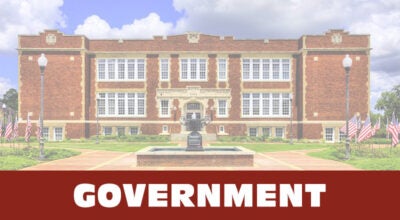Tech advances filled decade
Published 12:00 am Thursday, December 31, 2009
As the year and the decade comes to a close, The Star-News staff asked community leaders what has changed the most in the Andalusia and Covington County area in the past 10 years and what changes surprised them the most.
The answers ranged from better Christmas decorations to local television stations to the addition of Mrs. Grundy’s column to The Star-News, but a few themes emerged.
Technology
Think back to 1999. Cell phones were generally referred to as “car phones” and were primarily used there. E-mail accounts were growing in number, but most of us still accessed the Internet by dial-up.
Almost everyone asked about the major changes of the decade listed technology and its effects on personal communication, law enforcement, and even the arts.
“Ten years ago, we were sitting here without any fiber,” Andalusia Mayor Earl Johnson said. “We were in a black hole, so to speak. Technology has opened a whole new world for us.”
Johnson said advances in technology have made society more mobile. Those changes, he said, have put smaller communities like Andalusia in position to locate jobs here.
“In real estate, it’s location, location, location. In arts, it’s exposure, exposure, exposure,” said Paula Harr, director of the Covington Arts Council. “The more you see, the more you want. It’s made the interest in the arts grow.
“For instance, with Celtic Crossroads, a lot of people had seen them on YouTube and it made them more interested to come see them in person,” Harr said. “A lot of people were worried the Internet would do to the arts what it did to some other aspects of society. If there is an artistic act or group coming here and that group’s on the Internet or YouTube, it provides more interest.”
Covington County Schools’ interim superintendent Terry Holley credits technology with transforming education.
“Tremendous is how I would describe the impact of technology,” Holley said. “Take talking on a cell phone or e-mail — I have got access to that 24 hours a day. Who would have thought of that just 10 years ago? Now when you say ‘notebook’ in a classroom, you’ve got to ask what kind.
“Now, accessibility is wide open,” he said. “The Internet has made things like test scores and lesson plans available to parents. You can now see how our schools stack up against others in the state, and that’s all due to technology. The amount of information available is unreal.”
Holley cited the system’s crisis management program as a prime example of the role technology plays in education.
“During the recent floods, we utilized (the program) which sent out school closures via the telephone,” he said. “It also goes to show how viable it is to keep updated information on hand but it also shows how technology is utilized in all aspects of education.”
Technology also has had a tremendous impact on law enforcement.
“The biggest thing is the mobile computers that have been around for a pretty good while in larger metropolitan departments,” Andalusia Police Chief Wilbur Williams said. “But in the past three to four years, because of the price reductions, use is exploding in small departments.
“It just gives the officer everything right there at his fingertips — things like tags and driver’s license information. In a few seconds of his own volition, he knows if a person is wanted or what the story on them is.”
But with the good comes the bad, Williams and Sheriff Dennis Meeks agree.
“As good for (law enforcement) as it is, it’s even better for the criminal sector,” Meeks said. “So, it’s easy to say the computer world is one of the biggest changes we’ve seen over the decade.
“Things have gotten a little more sophisticated as far as the Internet goes,” Meeks said. “We are seeing a lot more internet crimes. It’s so easy for a pedophile to get on the Internet, get into a chat room and pretend they’re a child. There’s also people who use the web to scam others out of money. The possibilities for cyber crimes are limitless.”
Despite that, Williams said the technology has allowed law enforcement officers to reach out to the community.
“Our Web pages allow us to give people information,” Williams said. “Also, people have the capability of sending us messages, letting us know about things.”





